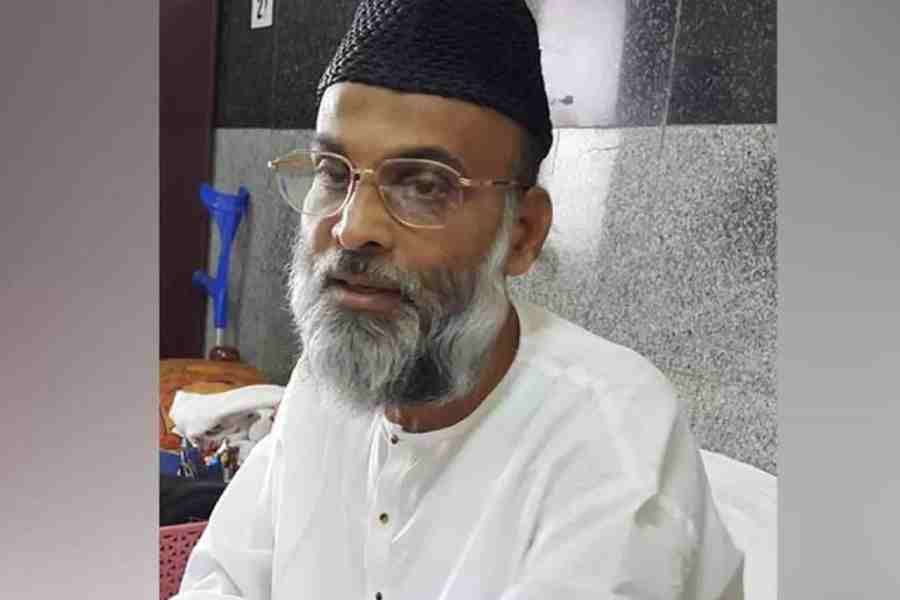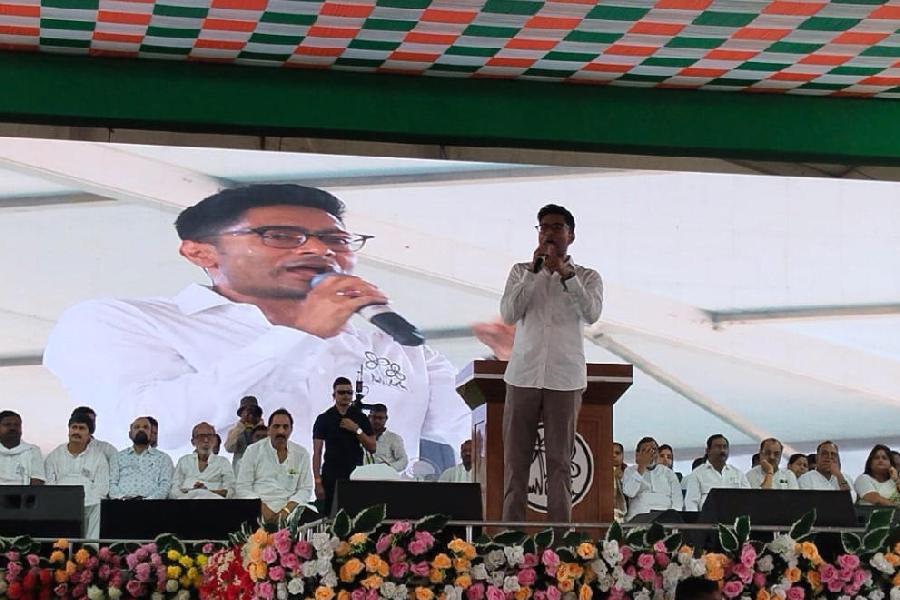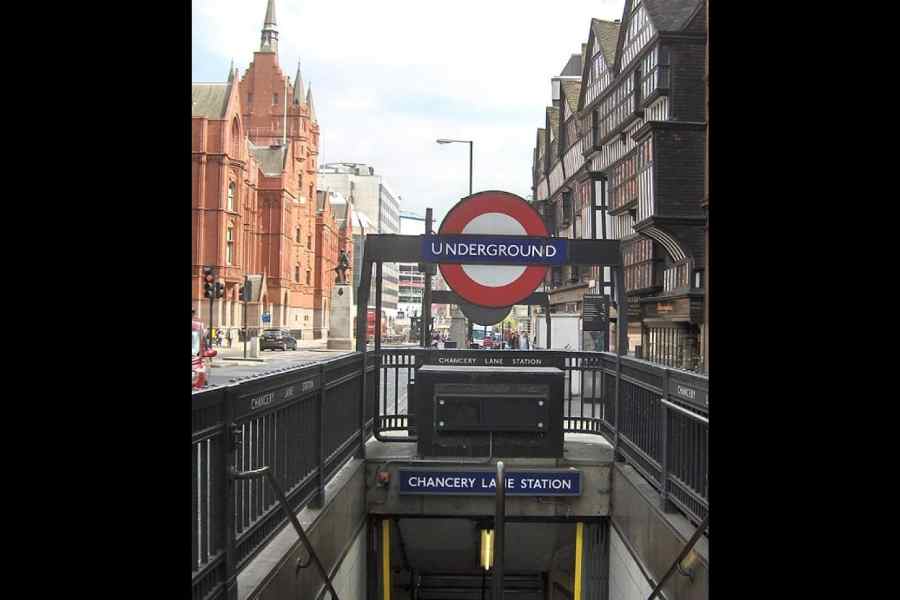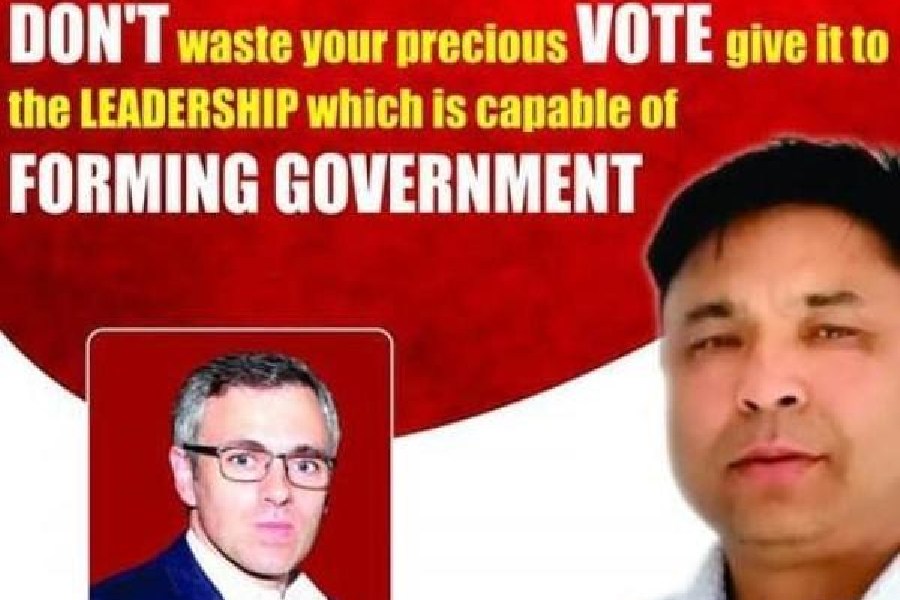He is nearing a quarter century as an undertrial in two separate cases. After nine years of incarceration in the first case, a special court had acquitted him of all charges. Three years later, he was arrested, once again, in another case in which he continues as an undertrial prisoner for the fifteenth year. This is the story of Abdul Nasser Madani, the founder-chairman of the Kerala-based Peoples Democratic Party, who says he is India’s longest-serving undertrial prisoner. Last year, both President Draupadi Murmu and Prime Minister Narendra Modi had expressed dismay at India’s large undertrial population — 3.5 lakhs, said to be the world’s largest, of whom most belong to the disadvantaged sections — and called for their early release.
Madani was arrested when he was a 33-year-old thickset, rabble-rousing youngster accused of being a dreaded Islamist. Today, the wheelchair-bound and emaciated 57-year-old is near-blind and seriously sick, unable to move without help. Suffering from ailments like chronic diabetes, hypertension, renal disease and so on, Madani has undergone multiple operations while in custody. During his incarceration, his mother died, his homemaker wife got implicated and arrested in a terror case, and his children got married.
On June 26, Madani, who remains in judicial custody in Bengaluru, arrived at Kochi accompanied by Karnataka Police officials after the Supreme Court granted him special permission to visit his ailing father. But immediately on arrival at Kochi airport, he took ill and was hospitalised. When he was discharged on July 7, Madani’s allotted bail period was over; he was to return to judicial custody in Bengaluru without meeting his father. He was also asked to pay Rs 6.76 lakhs to the government for the food and accommodation costs of the 20 police officers who escorted him. The apex court had granted Madani three months’ bail in April with instructions to cover the expenses for the police escort. But Madani petitioned the apex court saying that he could not pay the Rs 54.63 lakhs that the Karnataka government originally demanded for the security costs. He availed of the bail only after the amount was reduced following the court’s directions.
However, on July 17, the Supreme Court granted Madani a big breather when it accepted his years-long plea to be shifted to Kerala for medical treatment, dismissing the Karnataka government’s objections. The court directed Madani to appear at a local police station every two weeks but ordered the withdrawal of his police watch.
The Kerala Police had arrested Madani for the first time on March 31, 1998 from his home on the Tamil Nadu Police’s instruction in connection with the Coimbatore bomb blasts of February 14 in which 58 persons had died. The serial blasts occurred a few hours before the then president of the Bharatiya Janata Party, L.K. Advani, arrived for an election campaign. The police believed that Advani was the target. The Tamil Nadu Police accused Madani of telephonically discussing with the first accused, S.A. Basha, the founder of Al Ummah, the issue of retaliation for the death of 18 Muslims killed in the Coimbatore riots in 1997. In 2006, the Kerala assembly unanimously passed a resolution demanding Madani’s release. In August 2007, a special court exonerated Madani, the 15th accused, of all charges. Top BJP leaders had expressed their anger publicly at Madani’s release.
Madani came out from prison a transformed person. He publicly regretted his militant past and committed to non-violent and democratic activities. But in 2009, Madani’s wife, Soofiya, who had led his legal battle while he was in prison, was arrested in connection with torching a Tamil Nadu government bus near Kochi in 2005, allegedly to protest against Madani’s arrest. She is the 10th accused in the case, of which the trial is not yet over.
In August 2010, Madani was arrested again. This time it was by the Karnataka Police in connection with the Bengaluru serial blasts of July 25, 2008 that killed one and injured many. The PDP alleged that the arrest was part of the Karnataka BJP government’s vendetta. Madani, the 31st accused, was lodged in Bengaluru Central prison, and his bail plea was rejected by the Karnataka High Court more than once. The police said that Madani had conspired with T. Nazeer, the alleged South Indian commander of the Lashkar-e-Toiba. In 2011, the Karnataka Police even booked K.K. Shahina, a Kerala-based journalist, for doing a story that showed that some of the witness testimonies against Madani were forged.
In 2013, the Supreme Court granted Madani bail for the first time to attend his daughter’s wedding. Later, the court directed to shift him to a private hospital in Bengaluru and allowed his wife to be with him; this was opposed by the Karnataka government. Soofia was granted bail to be with Madani by the National Investigation Agency’s special court. The Supreme Court granted bail to Madani four times earlier to attend his children’s weddings and to visit his ailing mother, who passed away soon after. In 2021, the apex court refused to let him go to Kerala for treatment when the then Chief Justice of India, S.A. Bobde, had called him “a dangerous man.”
Madani, a conservative cleric who ran a madrasa-cum-orphanage in his native Anwarssery village in Kollam district, came into the limelight at the end of the 1980s when he formed the Islamic Seva Sangh. This was in response to the growth of the Rashtriya Swayamsevak Sangh, riding on the nascent Ayodhya movement, and the increasing communal clashes in North India. Known for his fiery speeches, the charismatic cleric soon became popular among young Muslims in central and south Kerala, where the community, unlike in north Kerala, was numerically and politically weaker. In August 1992, Madani lost his right leg in a bomb attack at his office, allegedly by Hindu militants. The Babri Masjid demolition in December of that year led to Madani intensifying his attack on the Hindutva camp. He monopolised the platform with the Muslim League, keeping a low profile. Assuming a wounded cult hero’s status, audio cassettes of Madani’s speeches were in huge demand. When the Central government banned the ISS after the Babri Masjid demolition and the subsequent riots in various parts of the country (Kerala witnessed no major violence), Madani disbanded the organisation and founded the PDP. He also moved away from the Islamic platform to a Muslim-Dalit unity project and dabbled in politics. He backed the Left Democratic Front in a by-election in 1993. Subsequently, Madani allied alternately between the United Democratic Front and the LDF in elections and moved around, escorted by black-clad bodyguards on motorbikes.
Madani’s predicament exposes not only the flaws of judicial and policing systems but also the deep prejudices embedded even in Kerala’s society, known for its dominant secular values. Despite the flagrant violation of his human rights, Madani, who spent more than 22 years without any charge against him being proven, found limited support from the state’s political and social circles and the media that get morally outraged at every breach of rights or even the screaming on social media.
M.G. Radhakrishnan, a senior journalist based in Thiruvananthapuram, has worked with various print and electronic media organisations










